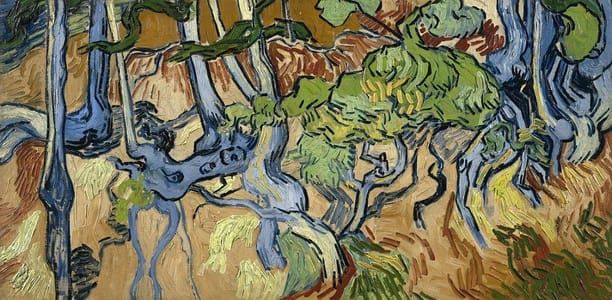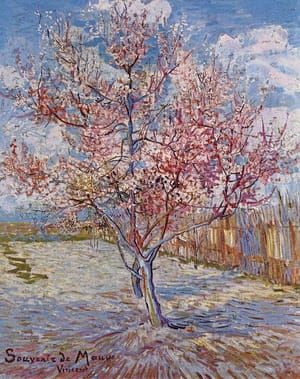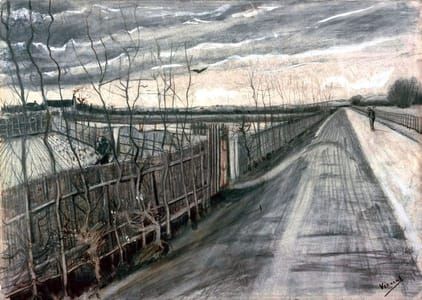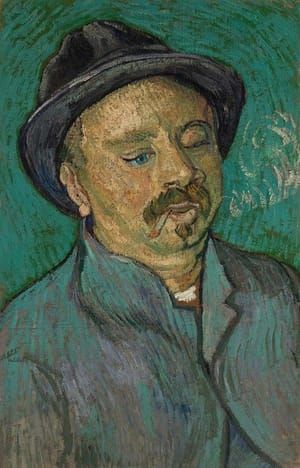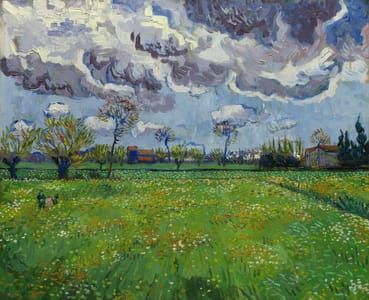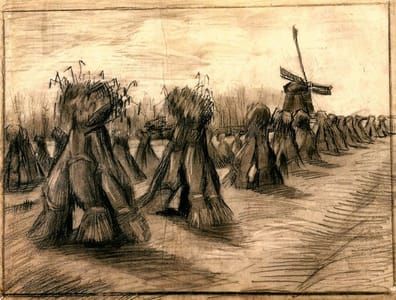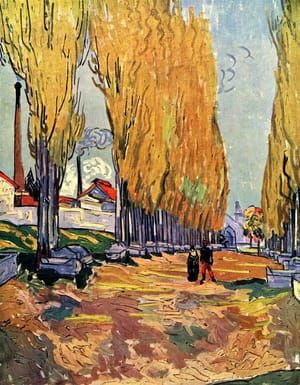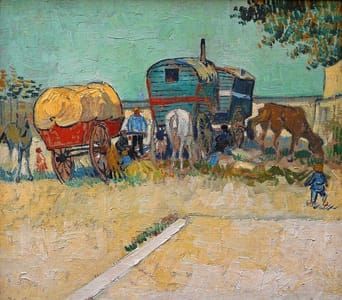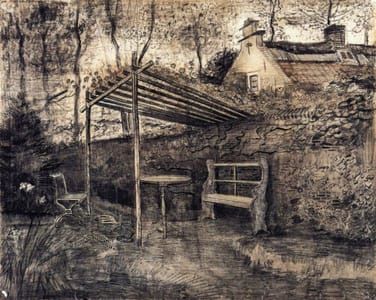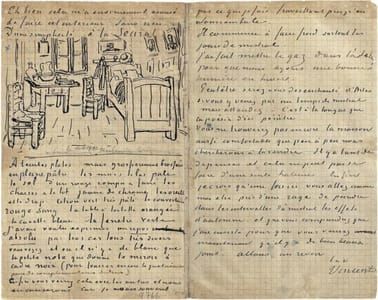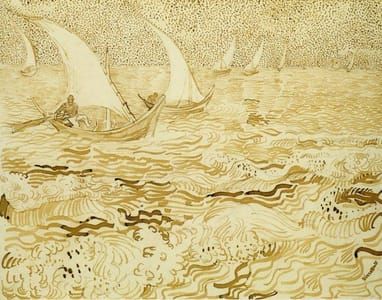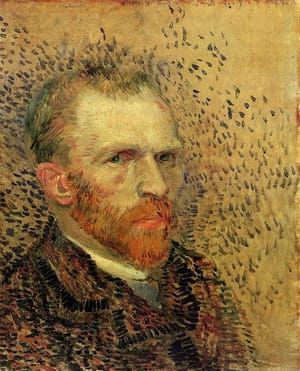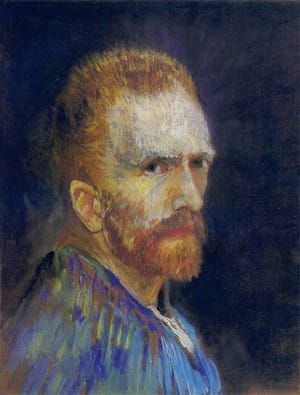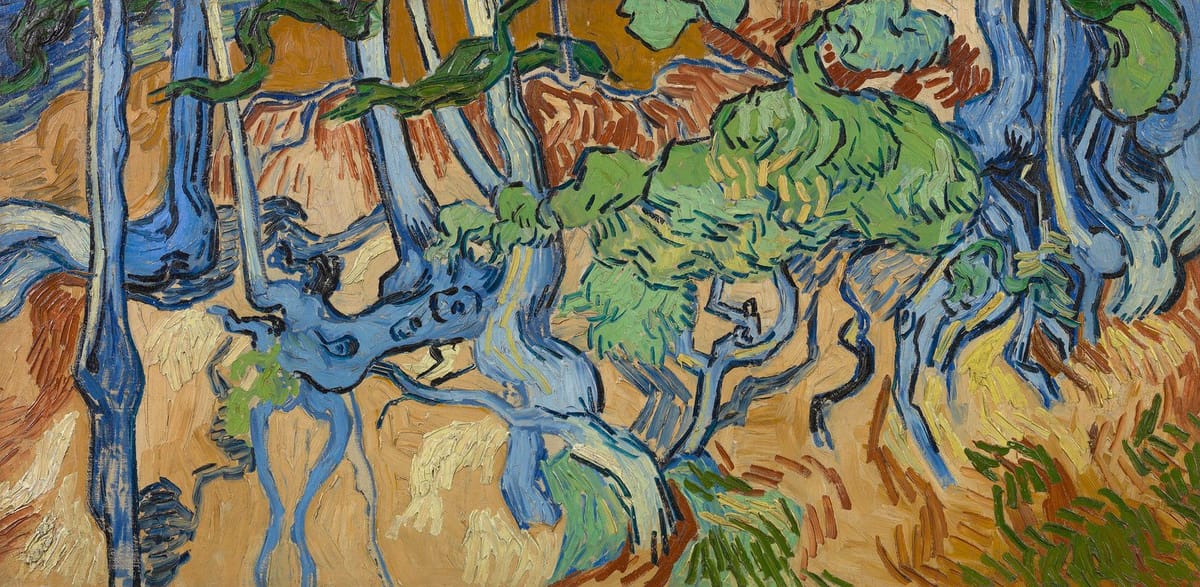

Tree Roots and Trunks, 1890
Vincent van Gogh
Many people believe that the more dramatic Wheatfield with Crows is Van Gogh’s final work. This colorful painting is a much likelier candidate, however, as he was unable to complete it, which helps explain its irregular, unfinished character. Theo’s brother-in-law, Andries Bonger, described it as follows in a letter: "The morning before his death, he had painted an underwood [sous-bois], full of sun and life."
Van Gogh had already made several drawings of tree roots in The Hague in 1882. He wrote at the time of his wish "to express something of life’s struggle […] in those gnarled black roots." It is tempting to see the same symbolism in these twisted tree roots, painted 8 years later.
The work seems to consist at first sight of a jumble of bright colors and abstract forms, prompting some art historians to identify Van Gogh as an important forerunner of abstract art. If you keep looking, however, you make out the tree roots... (https://www.vangoghmuseum.nl/en/collection/s0195V1962)
20 x 39 in
Uploaded on Oct 20, 2015 by Suzan Hamer
Vincent van Gogh
artistArthur
Wait what?

